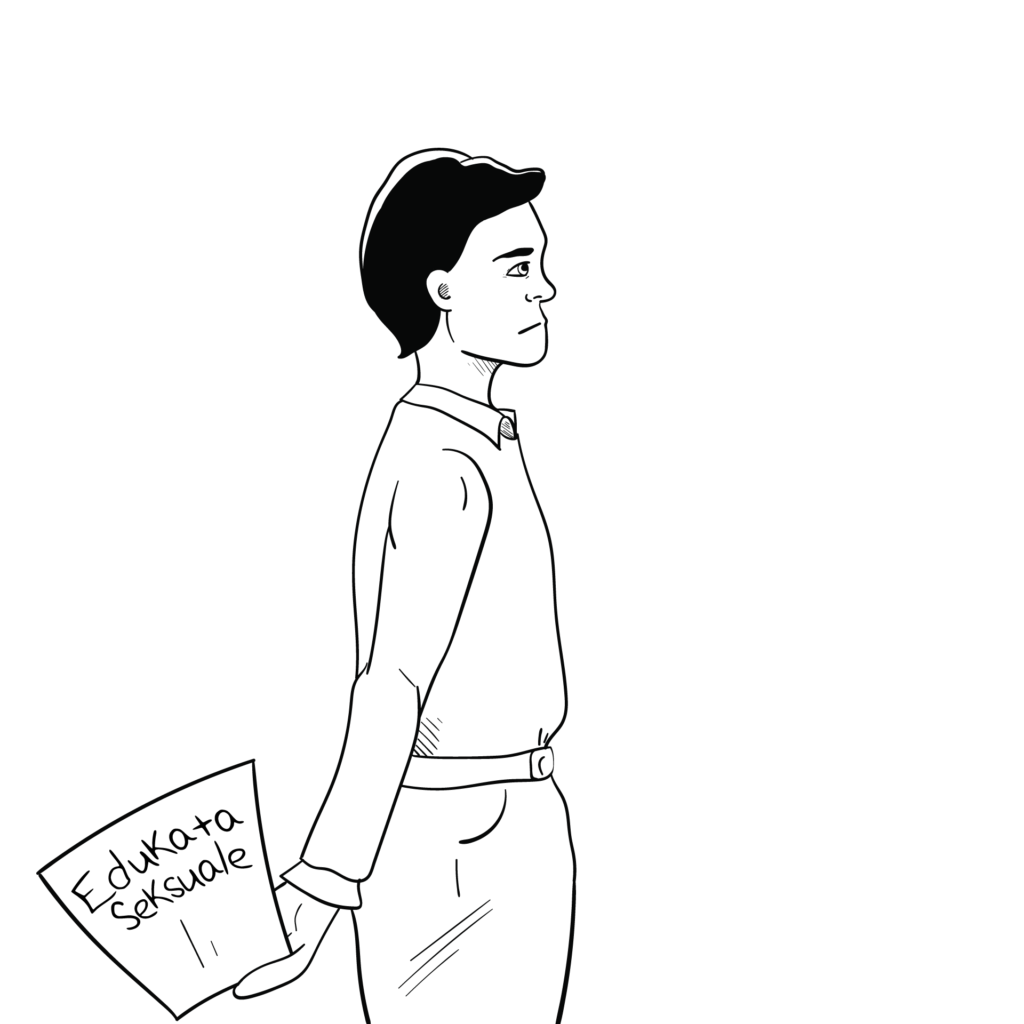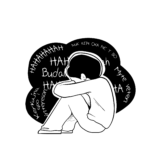LET’S TALK ABOUT LACK OF SEXUAL EDUCATION IN SCHOOLS
In a lot of places in the world sexual education is applied as a school subject from the first until the twelfth grade and in some places from the fifth grade. Application of sexual education in schools always brings benefits in lowering minors’ pregnancy rates.
Illustration: Argjira Kukaj

Sexual education is a subject that is rarely discussed in our country. Human sexual anatomy, sexual orientation, sexual intercourse, sexual reproduction, sexually transmittable diseases, safe sex and contraceptives are only some of the concepts that are taught and discussed about through sexual education. As a very important subject, sexual education is usually discussed with close people such as parents, guardians, siblings and friends. But a very important factor for informing people, especially younger ages, is the inclusion of sexual education in the school curriculum. In a lot of places in the world sexual education is applied as a school subject from the first until the twelfth grade and in some places from the fifth grade. Application of sexual education in schools always brings benefits in lowering minors’ pregnancy rates.
Because teenagers go through different big hormonal changes in this phase, they are the age group that is most sensitive and in most need of sexual education. From some interviews conducted with high school students, it is significantly noted that inclusion of sexual education in the school curriculum is very valuable.
Ema* is a young girl, 11th grade student for whom the importance of learning about sexual education in school has great weight. She says that school lessons that include sexual education are scarce.
“I remember in eighth grade when we were learning about sexual reproduction and genitals in Biology class. That whole lesson lasted two hours and the information we were offered was insufficient. Sexually transmitted diseases were mentioned but no information was given for protection or preventing them”, says Ema. According to her contraceptives were explained as a precautionary measure for pregnancy while failing to mention the fact that they are also used for sexually transmittable diseases. “Besides the information being insufficient, some friends from other schools told me that these lessons were completely withheld with the pretext that we don’t need them”, she added.
Ema believes that sexual education in schools must be learned from an earlier age, for example from the third grade, because not learning about basic things that are related to sexual education until the eighth grade is too late.
“If sexual intercourse and sexual orientation are discussed earlier, then children would not be confused if they saw two boys or two girls with their hands held and would also not be curious to learn more about sex through pornographic videos where they can encounter cases of rape or pedophilia and then their subconscious to normalize such negative occurrences from lack of information”, she noted.
Given the alarming number of underage birth giving, Ema reminds us that this phenomenon comes from lack of the right information around safe sex and contraceptives.
A subject that was transmitted very badly to the students according to Ema was also learning about menstruations. “Our Biology teacher in seventh grade only asked girls for the lesson about menstruation and said that it is not necessary for boys to know about this subject” she added.
Regarding sexual orientation Ema says that all that was mentioned until today has been a lesson in the subject of Psychology this year.
“In a book published around the 90’s sexual disorders were mentioned and it was cited that transgender and homosexual people have sexual disorders (something that isn’t factual) and we didn’t learn anything more about different sexual orientations” she said.
Also, for Emma, another concept that needs to be normalized is masturbation especially in girls because there’s a tendency for it to be seen as a shameful and non-discussable act.
Ema notices the lack of sexual education mostly in discussions with her peers. “I was interested and have read more about sexual education and I’m always an information source for my friends about this subject since we don’t have adequate people to ask for professional help from them” she noted.
According to Ema all these experiences and thoughts are some of the facts from which it is clearly seen that inclusion of sexual education in schools is very necessary and the competent authorities must take immediate action about this issue.
“When us students learn more about sexual reproduction of humans than chickens, then we can say that we’re all right in this aspect”
Ema concluded.
*The name Ema is used to preserve anonymity
On the author: Dijerrona Jakupi is a 20 years old girl from Prishtina who is attending studies in University AAB in the department of Massive Communication.
This activity is supported by Engagement for Equity Program – E4E, financed by United States Agency for International Development – USAID, and implemented by Advocacy Training and
Resource Center –ATRC.



I cling on to listening to the news talk about getting free online grant applications so I have been looking around for the top site to get one. Could you tell me please, where could i find some?